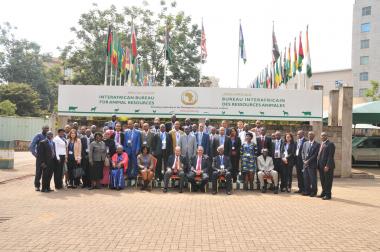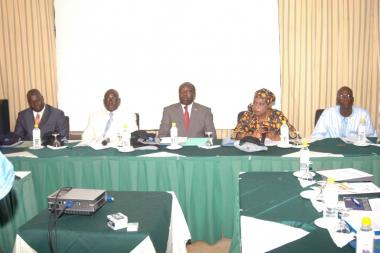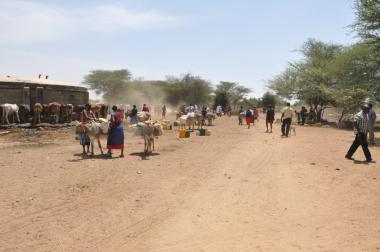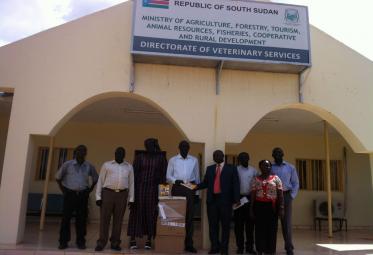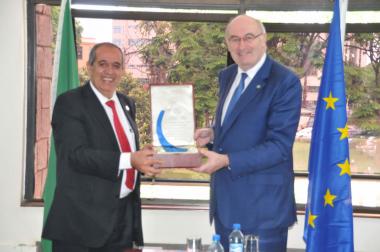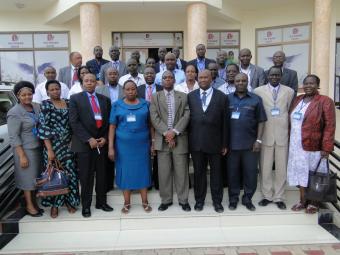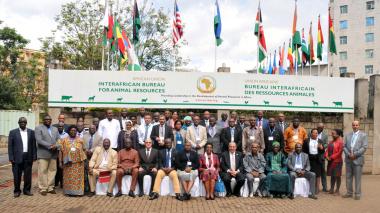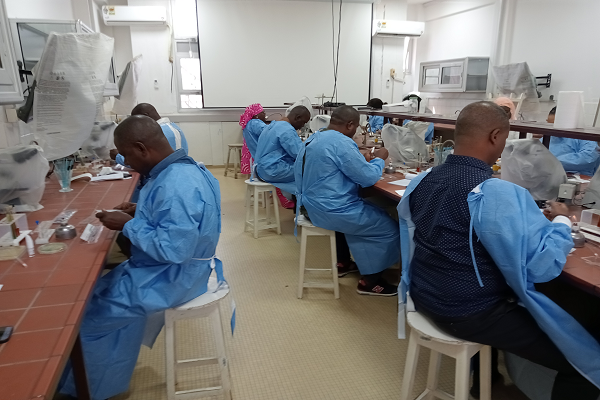
AU-IBAR recently organised a practical training event in Dakar, Senegal, in collaboration with the Ecole Inter-Etats des Sciences et Médecine Vétérinaires (EISMV), in an effort to combat the growing threat of antimicrobial resistance (AMR). From February 12th to 16th, 2024, ten animal health professionals and technicians from the Central African Republic, Democratic Republic of the Congo, Gabon, Cote D'Ivoire, Niger, Mauritania, Guinea Conakry, Equatorial Guinea, Burkina Faso, and Djibouti met for an intensive training session conducted entirely in French.
This training, the second of its kind after a successful inaugural event held from September 25th to 29th, 2023, was organised by the Containing the Emergence and Spread of Antimicrobial Resistance in Africa (CES-AMR Africa) Project, which is part of the Economics Trade and Marketing Unit (AU-IBAR) and funded by the United States Department of Agriculture (USDA).
Empowering Animal Health Professionals
The primary objective of this five-day training program was to equip participants with the requisite knowledge and skills essential for effective AMR surveillance, laboratory testing, animal pathogen isolation, and data collection and analysis techniques. By providing practical training grounded in real-world scenarios, AU-IBAR and EISMV aimed to empower attendees to address AMR challenges at the country level effectively.
Agenda Highlights
The training agenda was meticulously crafted to cover a wide array of topics essential for tackling AMR. Each day featured a blend of theoretical sessions and hands-on practical exercises facilitated by renowned experts in the field. Here are some highlights from the agenda:
Day 1: Understanding AMR Surveillance
The first day commenced with opening remarks from AU-IBAR and EISMV, followed by self-introductions and an overview of the training objectives. Participants delved into discussions on factors influencing the emergence of AMR and learned about AMR monitoring protocols. Practical sessions included a visit to the laboratory to observe best practices in susceptibility testing and poultry necropsies.
Day 2-4: Laboratory Techniques and Data Analysis
Subsequent days focused on laboratory testing techniques, animal pathogen isolation, and data collection and analysis. Participants honed their skills in laboratory testing and isolation techniques, antibiotic susceptibility testing, and data management for AMR monitoring. Practical exercises provided invaluable hands-on experience, ensuring participants were well-equipped to apply their newfound knowledge in real-world settings.
Day 5: Culmination and Certification
The final day of the training program culminated in the issuance of certificates to participants, acknowledging their successful completion of the training. Closing remarks from EISMV and AU-IBAR underscored the significance of collaborative efforts in addressing AMR and reiterated the commitment to continued capacity building initiatives.
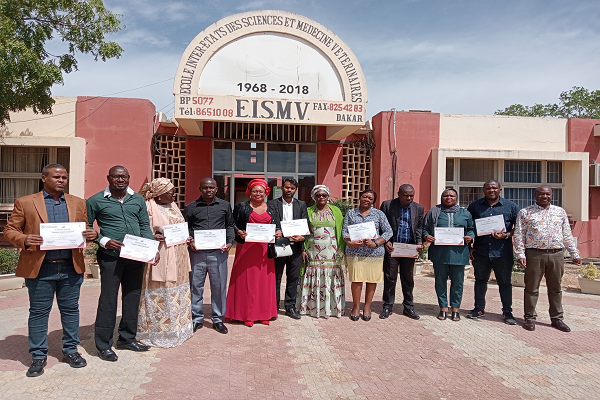
Significant progress has been made in the fight against antimicrobial resistance (AMR) across Africa as a result of the practical training that was organised by AU-IBAR and EISMV. Such programmes play a critical role in protecting public health and ensuring the sustainable management of antimicrobials in the veterinary sector. They do this by providing professionals working in animal health with the tools and expertise they need to do their jobs effectively. The ripple effects of this programme are poised to make a concrete influence on antimicrobial resistance (AMR) mitigation efforts across the continent when participants return to their home countries armed with new knowledge and abilities.

